Time reading skills Extra Challenge Worksheets for Ages 5-7
5 filtered results
-
From - To
Introducing our "Time Reading Skills Extra Challenge Worksheets for Ages 5-7"! Designed to enhance young learners' ability to tell time, these engaging activities offer a blend of fun and learning. Each worksheet is crafted to challenge kids through varied exercises, from reading analog clocks to understanding the concept of time. Perfect for practice at home or in the classroom, they help build a solid foundation for time management and math skills. Encourage your child to master telling time with these carefully curated, stimulating worksheets that make learning an adventure. Download now and watch your little ones become time-telling stars!
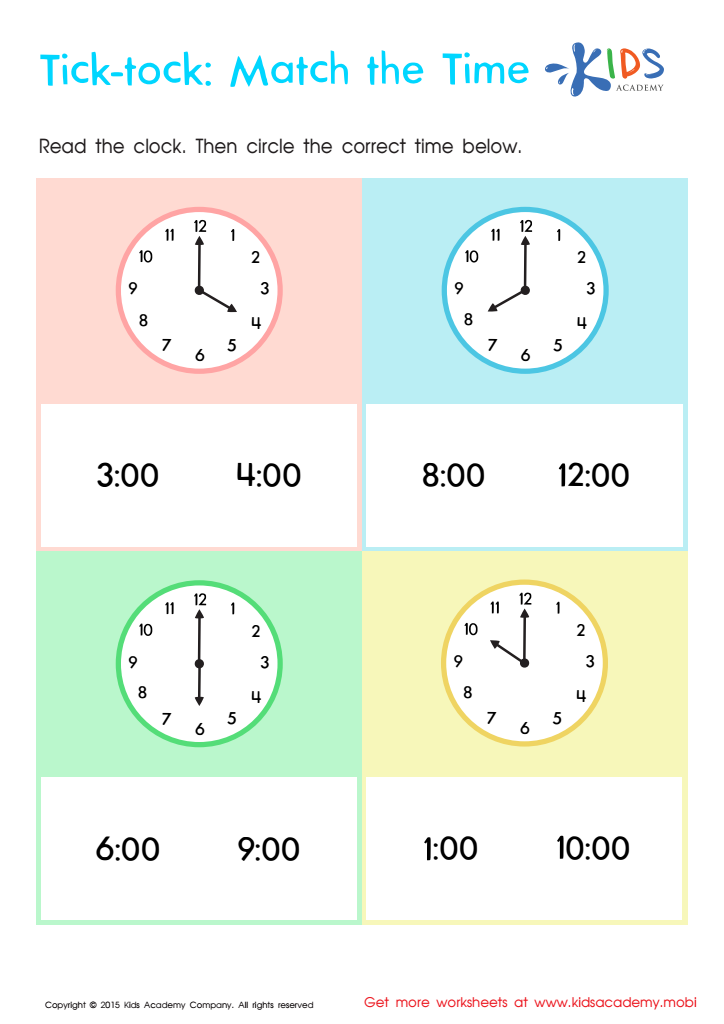

Telling The Time Worksheet: Part 4
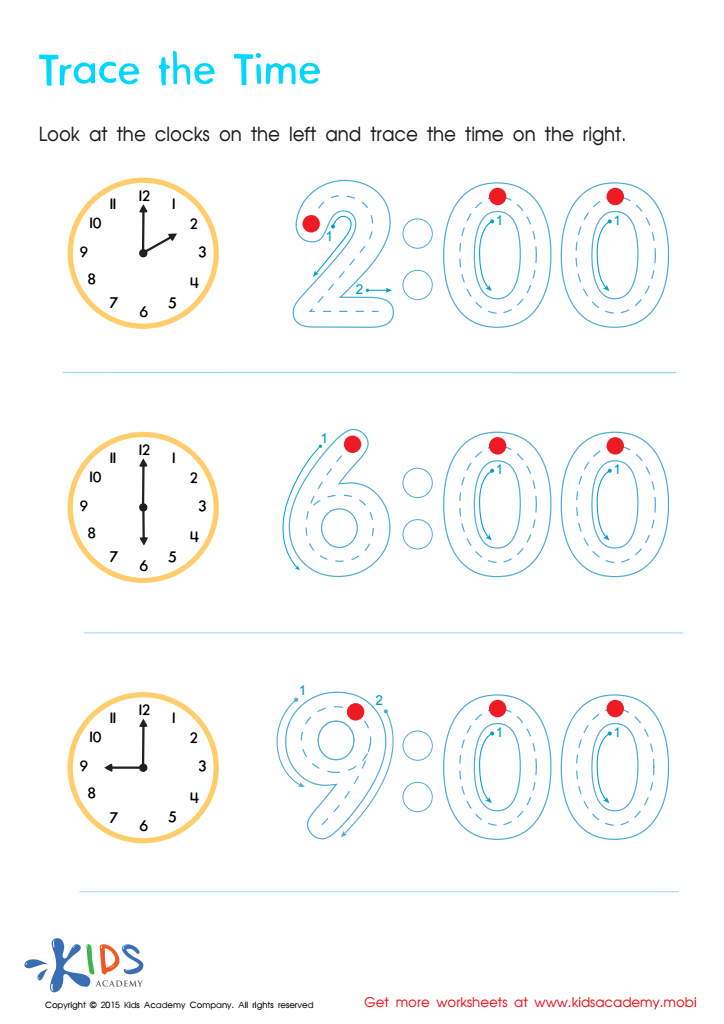

Telling The Time Worksheet: Part 2
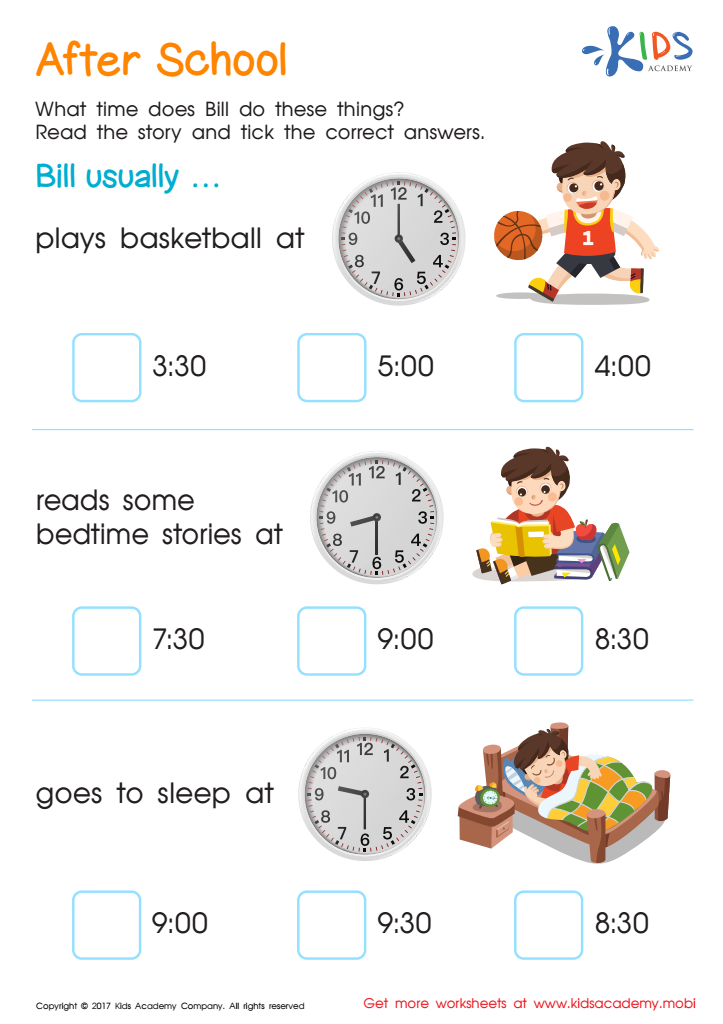

After School Time Printable
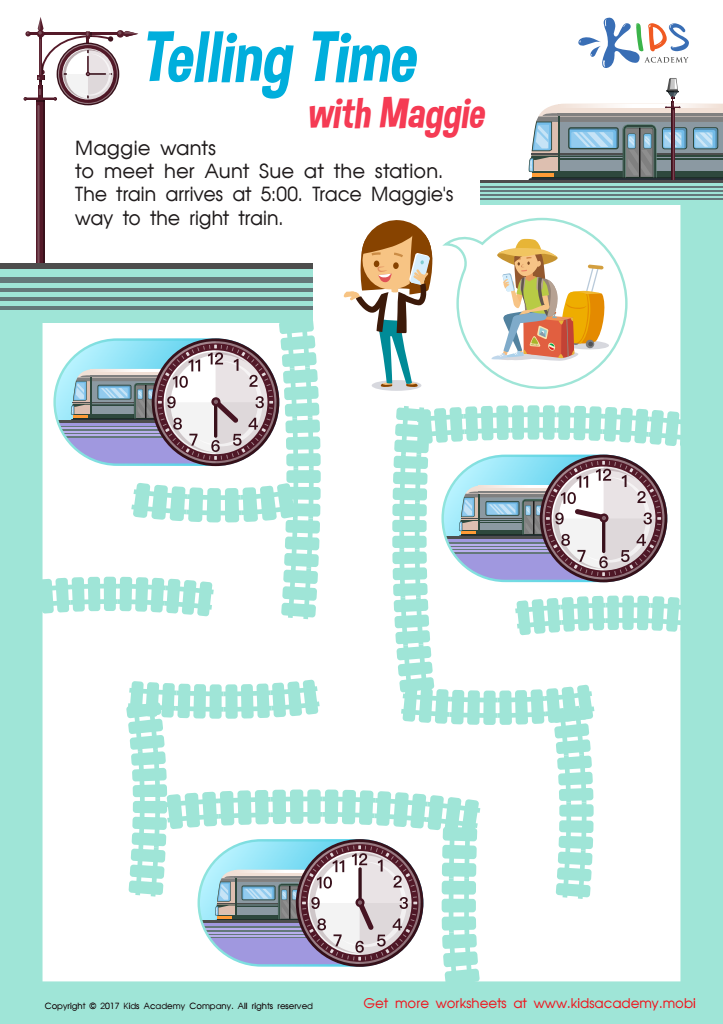

Telling Time With Maggie Time Worksheet
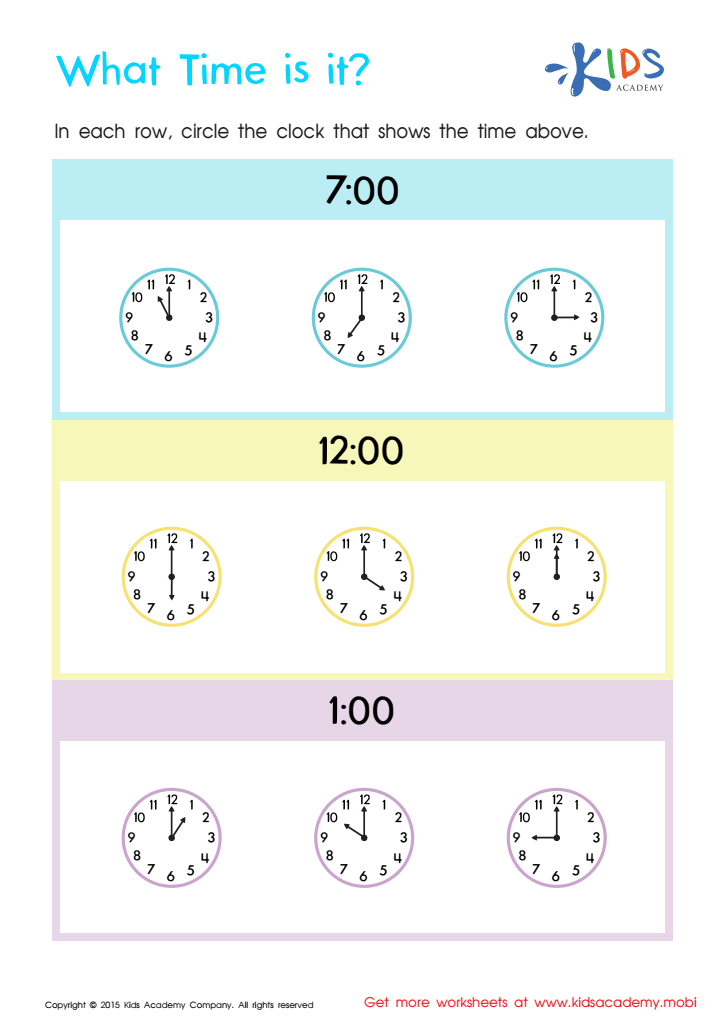

Telling The Time Worksheet: Part 3
Time reading skills are crucial for young children, ages 5-7, as they provide the foundation for understanding and managing daily routines and structure. Early mastery of telling time helps children grasp the concept of time itself, which is essential for developing strong organizational and time management skills later in life. When parents and teachers emphasize time reading skills with extra challenges, they encourage cognitive growth and boost a child's confidence in handling daily tasks.
Introducing these skills through engaging and challenging activities keeps learning fun and enhances critical thinking and problem-solving abilities. It can also help improve a child’s numerical skills, as they relate numbers to real-world scenarios. Additionally, time-reading fluency is closely linked with the ability to follow schedules, transition smoothly between activities, and become more independent.
Investing time in teaching and challenging young learners with time-reading exercises supports their academic performance, as many aspects of the school day—and even other subjects like math and science—rely on an understanding of time. Ultimately, these skills contribute to a child's overall development, preparing them better for future responsibilities and daily life management. Thus, parents and teachers should prioritize and challenge time reading skills for these young learners.
 Assign to My Students
Assign to My Students






















